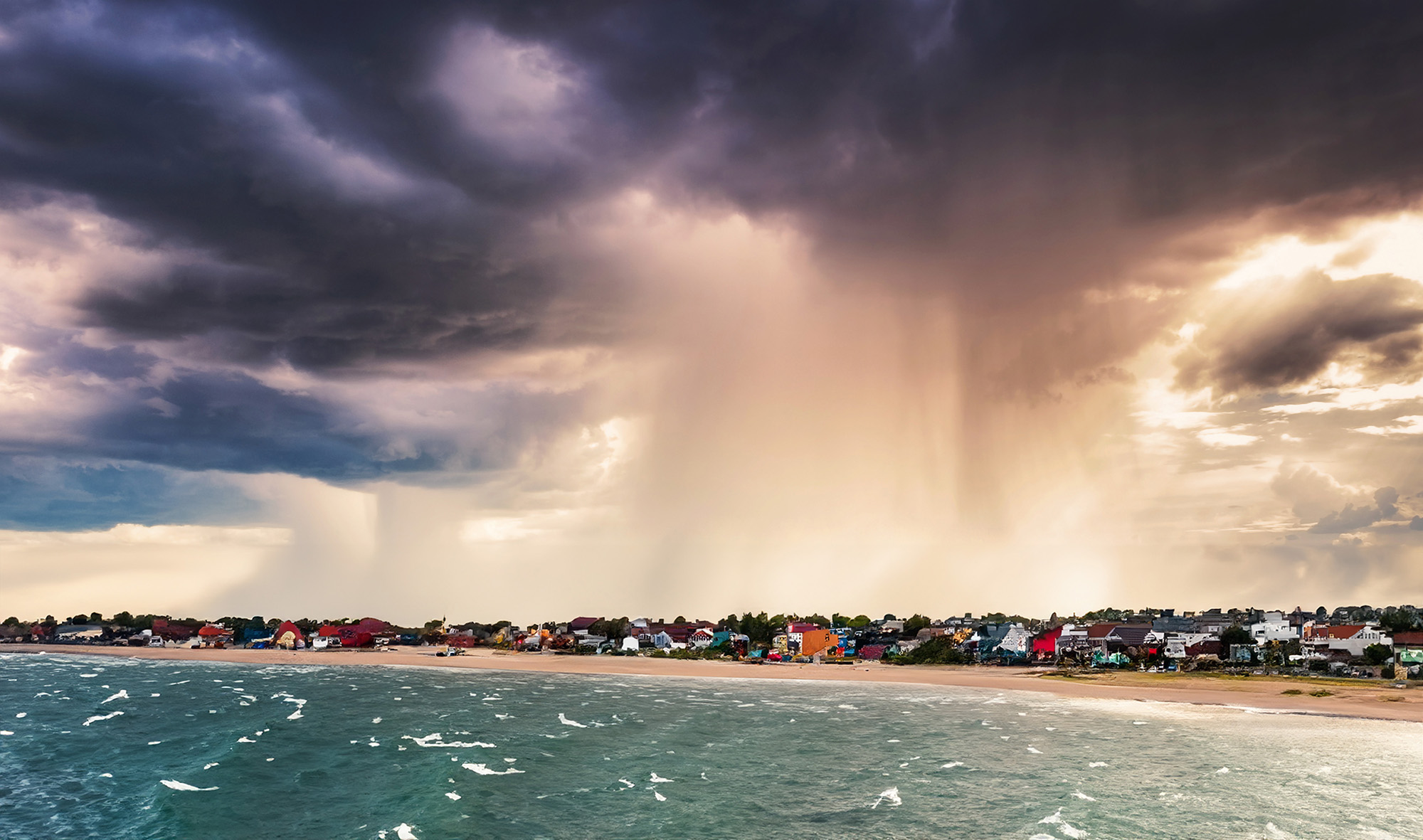Itxaso Oderiz, Marie Curie researcher, starts the TRANSCLIMA project at IHCantabria
This project proposes an analysis of the spatial changes of tropical and extratropical cyclones, in which the coasts will be classified into climatic regions for adaptation to climate change, under socioeconomic and ecological criteria
The postdoctoral researcher Itxaso Oderiz Martínez starts this month the development of the TRANSCLIMA research project, with which she proposes to advance in the detection and global assessment of climate risk in coastal regions.
Her project will be developed at the Environmental Hydraulics Institute of Cantabria (IHCantabria), with the support of a Marie Skłodowska-Curie Grant, awarded by the European Commission.
This project, which is funded by the Horizon Europe program, focuses on the identification and assessment of climate risk in coastal regions, with a particular focus on coasts in climatic regions depending on the changes expected from tropical and extratropical cyclones.
Its development will be supervised by IHCantabria’s Research Director and Professor at the Universidad de Cantabria (UC), Iñigo Losada.
The research proposed by Itxaso Oderiz starts from the premise that it is convenient to incorporate a spatio-temporal dimension in the analysis of climate change, addressing both the intensity of extreme events and the variation in their displacement.
Relevance and objectives of the TRANSCLIMA project
The acronym TRANSCLIMA comes from the following title: Detection and Global Risk Assessment of Coastal Transitional Climate and Neo-climate Regions in a Warming World.
According to the Sixth Assessment Report (AR6) of the Intergovernmental Panel on Climate Change (IPCC), “coastal zones are one of the areas most vulnerable to climate emergency”. Recent anomalous weather events, such as Cyclone Kenneth that affected the northern coast of Mozambique, or the unexpected intensification of Cyclone Otis in 2023. “In recent years cyclones have been detected with anomalous behavior to historical records, from unexpected trajectories and rapid intensifications of these events, their study is very complex and we have many unanswered questions,” Oderiz exposed in her research proposal.
The TRANSCLIMA project seeks to address these problems by identifying coastal regions that will be affected by extreme events in the future, using a probabilistic framework that can guide decision-makers in adapting to climate change, both at the socioeconomic level and in terms of preserving ecosystems. This makes TRANSCLIMA a pioneering project, “by integrating the study of long-term extreme events into an adaptation framework that allows guidelines for coastal adaptation to be proposed,” says Oderiz.
Expected impact with the development of the TRANSCLIMA project
The results of this project will not only contribute to the development of scientific knowledge, but will also provide practical tools for risk management in coastal zones, which will be freely accessible and will promote knowledge transfer to facilitate their application in coastal adaptation policies.
To disseminate the results of this project, workshops, seminars and other scientific dissemination activities are planned for experts, policy makers and society in general.
Therefore, the development of the TRANSCLIMA project will mark a milestone in the understanding and management of coastal climate risk, as it will provide innovative solutions for the protection of the most vulnerable communities and ecosystems.

According to the Sixth Assessment Report (AR6) of the Intergovernmental Panel on Climate Change (IPCC), “coastal zones are one of the areas most vulnerable to climate emergency”
![]() “Funded by the European Union. Views and opinions expressed are however those of the author(s) only and do not necessarily reflect those of the European Union nor European Research Executive Agency (REA). Neither the European Union nor the REA can be held responsible for them.”
“Funded by the European Union. Views and opinions expressed are however those of the author(s) only and do not necessarily reflect those of the European Union nor European Research Executive Agency (REA). Neither the European Union nor the REA can be held responsible for them.”



